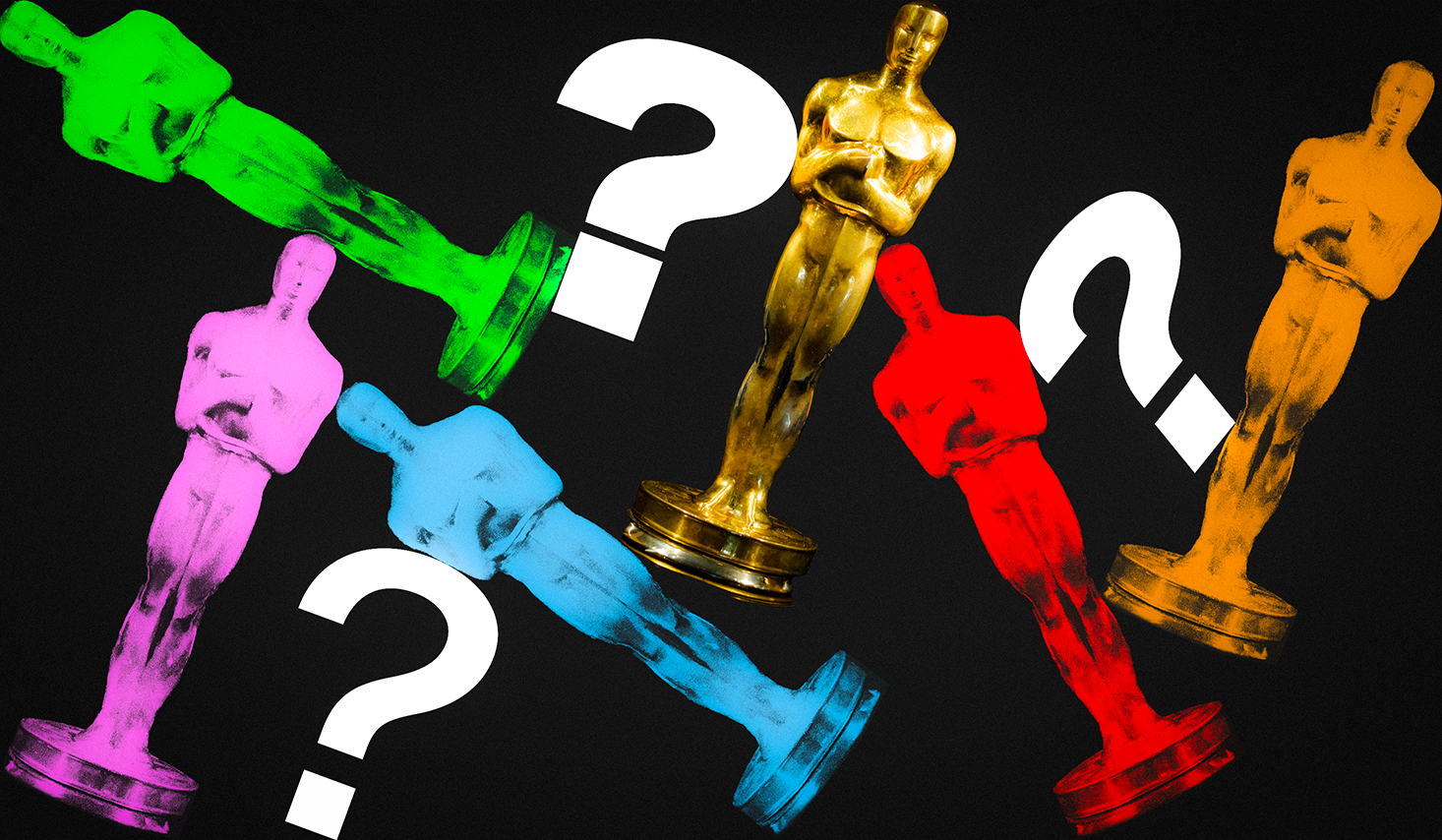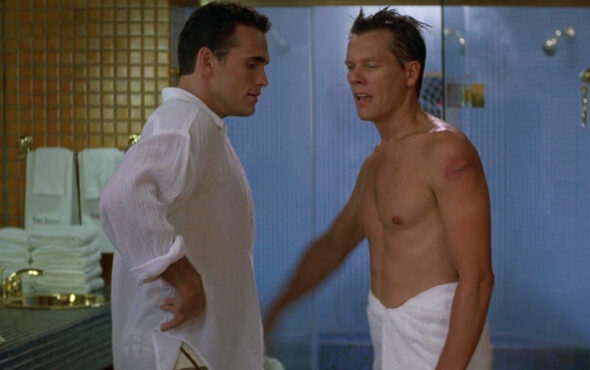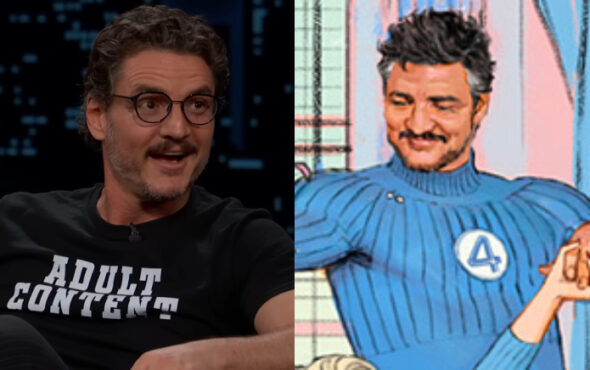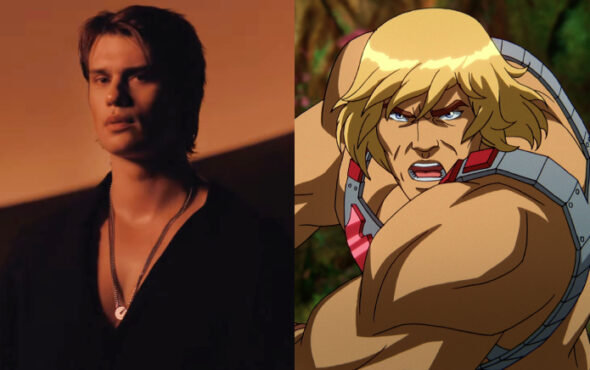
Last night, awards season reached its culmination with the 96th Academy Awards and, well, there was one thing we couldn’t help but notice. While the ceremony has, admittedly, always been more than a bit behind in terms of representation – it took until 2022 for a queer woman of colour to win an Oscar for acting, after all – it seemed like, in 2024, the LGBTQIA+ community had been majorly snubbed.
Yep, despite what feels like an unprecedented amount of queer nominations at this year’s Oscars, at first glance it seemed like LGBTQIA+ actors and films went home pretty much empty-handed – except for the notable exception of Billie Eilish, who won her second Oscar for ‘What Was I Made For?’ from the Barbie soundtrack.
Of course, it could have ended so differently. Among the nominations were biopics like Rustin, Maestro and Nyad, which focussed on queer figures and secured nominations for IRL queer actors Colman Domingo and Jodie Foster. In the animation category, Nimona championed queer themes and an even queerer cast, and we almost had our first ever she/they Best Actress win from Lily Gladstone, the undeniable heart of Killers of The Flower Moon.
View this post on Instagram
However none of this was to be, and those of you rooting for Gladstone and Domingo may be feeling defeated by the winners’ list today. But before we start calling out the Oscars for being so straight, let’s look beyond the initial injustices, to see if this year’s awards ceremony may in fact be queerer than it first appears. And no I’m not talking about Towa Bird and Reneé Rapp making their public debut at the Vanity Fair afterparty.
The explicitly queer storylines may not have received their accolades but there were many that did. Bisexual women’s stories were highly accoladed at this year’s Oscars. Poor Things, took home four awards including Emma Stone receiving Best Actress for her role as Bella Baxter and Holly Waddington winning for Best Costume Design, and Anatomy of a Fall was awarded winner of Best Original Screenplay.
Bella Baxter’s first sexual relationship may be with Duncan Wedderburn (Mark Ruffalo) but her most significant relationship which is both mentally and physically stimulating is with fellow sex worker and comrade Toinette (Suzy Bemba). Poor Things’ central character is an unsung queer icon, not only for her gender non-conforming sexual curiosity but also the film’s acceptance of this fact without categorising it. Bella is never asked to define her sexuality and nor should she have to.
In Anatomy of a Fall, not only is Sandra (Sandra Huller) put on trial for the death of her husband, but her sexual orientation is used against her by the prosecution. Her bisexuality and previous affairs with women being weaponised as evidence to suggest her guilt. In this way, Anatomy of a Fall’s richly nuanced script succeeds in demonstrating how every facet of a woman’s identity can be used against her in court, highlighting the deep misogyny still rife in society and the ongoing prejudices against bisexuality.
It is not just bisexual visibility that was championed at last night’s Oscars, there were triumphant moments of queer, Black representation. American Fiction, awarded for Best Adapted Screenplay, is known primarily for its dissection of the publishing industry’s narrow-sighted view of Black stories and authors – but it also features a strong queer presence. The storyline of Cliff (Sterling K Brown), brother to Thelonious “Monk” Ellison (Jeffrey Wright), follows the divorcee as he comes out and grapples with how his family will react to his sexuality.
@vanityfair #ReneeRapp and Towa Bird make their red carpet debut as a couple. #vfoscars #vanityfairoscarparty #oscars ♬ original sound – Vanity Fair
Turning up to the red carpet in cowboy boots and a diamond-encrusted suit jacket, Domingo may not have gotten his Oscar, but he surely had his moment. Not only did he, in his own words, “shine like a diamond”, he offered some profound thoughts on the role of representation in cinema. Domingo told E! host Laverne Cox “I want [audiences] to see that I care deeply about depictions of Black men in the world, making spaces for women in the world and all of our communities as well.” This certainly won’t be Domingo’s last chance at an Oscar and we can’t wait to see what he does next.
Perhaps this year’s Oscar winners weren’t as explicitly queer as we expected, but that doesn’t mean that narratives of extreme importance to the LQBTQIA+ community weren’t platformed. This year’s Oscars awarded films which pushed bi visibility forward in new ways and started conversations about the importance of Black queer representation, while Ryan Gosling delivered the campest performance the Oscars has ever seen.
Clearly, the Oscars weren’t that straight after all – but let’s hope next year offers an opportunity for queer and trans actors to be given their flowers, and their statuettes.


